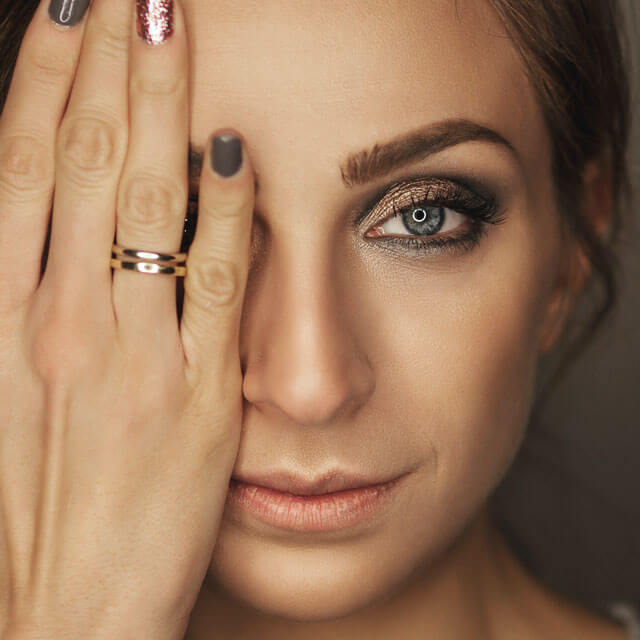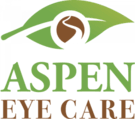EYE EXAMS in Sherwood Park
Learn more about what problems can be spotted with an eye exam, what's involved in a comprehensive exam, and special considerations for kids and contacts.
Keeping Your Eyes Healthy is Our Top Priority
Everyone, regardless of age or physical health, should make sure to have regular eye exams at least once a year. During your complete eye exam, our Eye Doctor in Sherwood Park, AB will not only determine your prescription for eyeglasses or contact lenses, but will also check your eyes for common eye diseases, assess how your eyes work together as a team and evaluate your eyes as an indicator of your overall health.
A comprehensive eye exam includes a number of tests and procedures to examine and evaluate the health of your eyes and the quality of your vision. These tests range from simple ones, like having you read an eye chart, to complex tests, such as using a high-powered lens to examine the health of the tissues inside of your eyes.
Eye care experts in Sherwood Park recommend you have a complete eye exam every year.
No matter whom you are or what your age is, a complete eye exam will go a long way towards ensuring that your sight remains clear and healthy. A thorough eye and vision evaluation can be performed by , therefore, eye doctor at Aspen Eye Care. If you haven't been to the optometrist in more than a year, it's time to book a consultation for an eye exam.
Every eye exam we conduct includes a free LipiScan™ test, which tests for the presence of Dry Eye Syndrome. A totally painless test lasting one minute, Lipiscan can determine whether a patient is suffering from this common eye issue.
How often do I need an eye exam?
Your symptoms, personal vision condition and the professional judgment of our Sherwood Park optometrist will often determine the ideal schedule for comprehensive eye testing. We generally adhere to the guidelines set by the Alberta Association of optometrists (AAO), which state that yearly eye exams are recommended for adults who need vision correction (eyeglasses or contact lenses).
When no vision correction is required, all adults should have an eye evaluation performed annually, after age 40. The risk of many ocular diseases, such as cataracts and macular degeneration, increases past age 60, and it’s advised to consult with our optometrist about the frequency of your examinations. In addition, some health factors, such as diabetes and hypertension, indicate a need for more frequent eye exams; ask your eye doctor for guidance.


From Eye Exam to New Lenses
How does the eye doctor find my prescription?
Our eye doctor in Sherwood Park, Alberta, will check your vision thoroughly to provide you with an accurate prescription. If you wear eyeglasses or contact lenses, your visual acuity will be assessed both with and without your corrective lenses.
You’ll be asked to read from a basic eye chart of numbers and letters, which tests your eyesight at various distances. The normal measurement for eyes with no refractive error is 20/20. We’ll also use a phoropter to check carefully for astigmatism, nearsightedness, and farsightedness. This procedure involves having you look through a series of lenses, and you’ll need to give feedback on which ones give the clearest vision. With the aid of a retinoscope, we’ll measure how light focuses on your retina with each of the different lenses.
Altogether, these tests will provide us with the information necessary to issue you a highly accurate vision prescription. All that’s left for you to do is choose a pair of attractive frames from our eyewear collection or purchase from our selection of premium contact lenses, and you’ll see and look sharp in no time!
Sherwood Park Eye Exams for Children
Some experts estimate that approximately 5% to 10% of preschoolers and 25% of school-aged children have vision problems. According to the Alberta Association of optometrists (AAO), all children should have their eyes examined at 6 months of age, at age 3 and again at the start of school. Children without vision problems or risk factors should then continue to have their eyes examined at least every two years throughout school.
Children with existing vision problems or risk factors should have their eyes examined more frequently. Common risk factors for vision problems include:
- premature birth
- developmental delays
- turned or crossed eyes
- the family history of eye disease
- history of eye injury
- other physical illness or disease
The AOA recommends that children who wear eyeglasses or contact lenses should have their eyes examined at least every 12 months or according to their eye doctor’s instructions. Consult with our Sherwood Park eye doctors for personalized recommendations about when your child needs an eye exam.


Importance of routine eye examinations
Another thing to ponder is the fact that the eye may be predisposed to certain problems, similar to other parts of the body. Most people have heard of the most familiar disorders of the eye, such as glaucoma and diabetic retinopathy. Since these ailments usually display no signs or symptoms in their early stages, it’s vital that you depend upon preventive health care to avoid many common eye diseases. This is best accomplished by having regular eye examinations.
Our Sherwood Park eye doctor will have the ability to look for diseases like glaucoma, to ensure that you can take suitable steps to eradicate the disease before it progresses. Even though these diseases are more prevalent in elderly individuals, it is vital to note that eye disease can also occur at an earlier age.
Vision testing vs. complete eye testing
It’s important to differentiate between a basic vision screening and an in-depth eye exam. A lot of people trust that by having a registered nurse or primary care doctor conduct a vision screening, that this is sufficient. However, vision screening may only include reading letters off a chart at various distances. There are many more evaluations and checks that must be performed to inspect for other diseases such as cataracts, macular degeneration, Dry Eye Syndrome or Computer Vision. Only comprehensive eye examinations done on a consistent schedule can ensure that your eyes are being kept safe!
